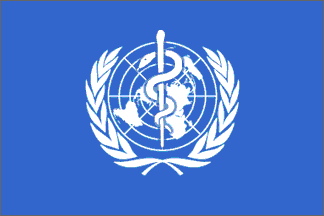
By Lida Lhotska (IBFAN-GIFA) and Arun Gupta (BPNI/IBFAN Asia)
Concerns surround the possible adoption of a new World Health Organization policy of engagement with non-state entities – which could mean big business – and potential conflicts of interest, Arun Gupta and Lida Lhotska write.
Is the World Health Organization (WHO) selling out? Serious concerns surround the organisation’s reform process as the possible adoption of the new policy of engagement with non-state actors approaches. Will WHO emerge a stronger player in global health governance, or another tool for transnational corporations and venture philanthropies to dictate the terms of our health?
The apprehension surrounds WHO’s new policy for engagement with NGOs, the private sector and philanthropic foundations. Known as the Framework for Engagement with Non-State Actors (FENSA), there are fears that FENSA will increase rather than decrease problematic entanglements between WHO and powerful private sector actors. These concerns have been put directly to the WHO Director-General as well as to WHO Member States.
Critics say that FENSA’s principle of ‘inclusiveness’ for all non-state actors indicates the failure to acknowledge the different nature – and thus different roles – public and private sector actors should play in global health governance. Businesses associations strongly favour this ‘principle’. It opens the door wide to their shaping public health policies and priorities.
The ‘inclusiveness’ principle contradicts effective conflict of interest (COI) policies. Thus it seems not surprising that the conflict of interest section of FENSA is still inaccurate. This is extremely worrying as conflict of interest considerations must be central in the development of the safeguards WHO needs to genuinely work in peoples’ interest.
Public interest advocates have been clear: adequate safeguards must consider which actor to exclude, when and why, and an effective conflict of interest policy relies on vigilance and an arms-length approach. This would not preclude interactions between WHO and corporate actors but it would ensure these interactions are appropriate.
In January 2016 WHO’s Executive Board recognised that the FENSA draft was not advanced sufficiently to recommend its adoption at the World Health Assembly (WHA) in May, and extended the mandate of the Member States working group to continue negotiations. Public interest advocates, such as the Third World Network and the International Baby Food Action Network, called for these negotiations to be opened to them and to experts on conflicts of interest, but to no avail.
WHO was also asked to present “an objective and balanced report on the implications for WHO of the implementation of the framework.” This report, developed with the assistance of an External Auditor prior the latest negotiations (25 to 27 April 2016), had proposed to finalise FENSA as a consensus text for adoption to the WHA in May.
The Audit Report contained valid observations, such as that “there is no price for a strong and solid framework”. However, it failed proposing to correct the inaccurate conceptualisation of the FENSA conflicts of interest section and the April FENSA negotiations did little to address this and other key concerns of public interest advocates. Yet, as these authors have emphasised, if conflicts of interest are not properly identified, resolved and managed, they can undermine the work and reputation of an entire institution.
The Audit Report mentions important methodological problems in the data collection, due to, among others, “lack of documentation and records”. It also mentions “a lack of clarity of (or inconsistencies between) many of the terms and provisions” of FENSA. It is therefore hard to understand how the Audit Report could recommend that FENSA be adopted because it had been through “a long, arduous and costly corridor”. It is not an acceptable argument as WHO’s integrity, independence, credibility and reputation are at stake.
Member States should resist the pressure to adopt an ill-conceived consensus document which risks increasing channels of undue influence. One such channel is the proposed policy for Official relations embedded in FENSA. Currently only NGOs can apply for Official Relations status with WHO. In practice, some business associations, such as the International Federation of Pharmaceutical Manufacturers Associations, have gained the status by emphasising their non-profit nature.
If adopted, the new Official Relations policy in FENSA will legitimise once and for all lobbying of business associations and philanthropic foundations at WHO governing bodies under the label of non-state actors. This will normalise the inclusion of business agendas into public health decision-making. How does this tally with FENSA’s stated principles that any engagement must “protect WHO from any undue influence, in particular on processes in setting and applying polices, norms and standards”; and “not compromise WHO’s integrity, independence, credibility and reputation”?
The assertion that the continuation of FENSA negotiations would put WHO into a precarious position is not justified. There are policies in place for NGOs, the private sector and commercial enterprises, and public-private partnerships. They are not perfect but could be in the interim strengthened by some important provisions which came out of the FENSA debate. This step-by-step approach would allow for adequate time for continued discussions to strengthen FENSA.
If the WHO Reform were not linked with increased fundraising from private-sector sources, the above concerns might be less preoccupying. But the bottom line remains: if Member States and citizens are to trust the norms, standards and regulatory frameworks developed by WHO, the agency must be freed from thefreeze imposed on Member States’ financial contributions for WHO’s core work. The dependency on earmarked voluntary contributions from major donor states, private sector and philanthropic entities must end.
A new WHO Director-General will take over in May 2017. Will she or he inherit an agency whose mandate to work for health for all is well protected, or a weak player in hands of powerful corporate interests? We still hope for the former.
